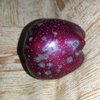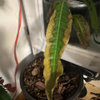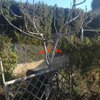EWG Pesticides
daemon2525
11 years ago
Related Stories

GARDENING FOR BUTTERFLIES3 Ways Native Plants Make Gardening So Much Better
You probably know about the lower maintenance. But native plants' other benefits go far beyond a little less watering and weeding
Full Story
HEALTHY HOMESleep Happier and Healthier in a Toxin-Free Bedroom
Light pollution, toxic bedding, wallpaper that off-gases ... if you're not getting good sleep, these bedroom blights might be to blame
Full Story
KITCHEN DESIGNEasy Green: 10 Small Kitchen Changes to Make Today
Taking small steps in going green can lead to big results over time, and starting in the kitchen is a smart choice
Full Story









myk1
birdgardner
Related Professionals
Willowick Landscape Architects & Landscape Designers · Williamsburg Landscape Contractors · Blue Springs Landscape Contractors · Commack Landscape Contractors · Doctor Phillips Landscape Contractors · Essex Landscape Contractors · Haverhill Landscape Contractors · Lancaster Landscape Contractors · Miller Place Landscape Contractors · North Haven Landscape Contractors · Old Saybrook Landscape Contractors · Palm Beach Gardens Landscape Contractors · Pleasanton Landscape Contractors · San Benito Landscape Contractors · Forest Hill Landscape Contractorsolpea